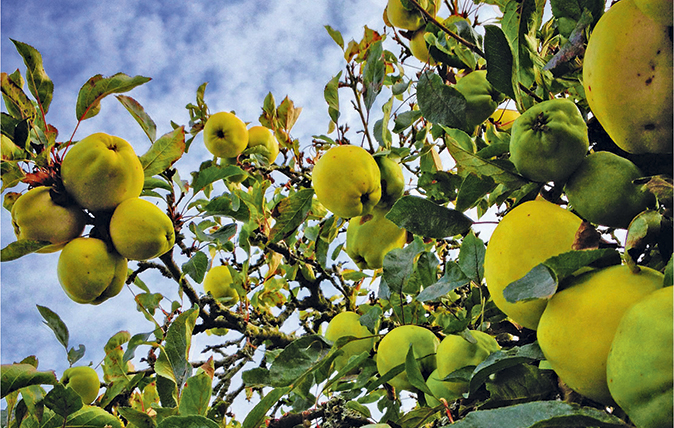Brexit: GM crops could get the green light
Agriculture minister George Eustice has confirmed the Government is looking at 'possible future arrangements' for GM crop regulations.


Exquisite houses, the beauty of Nature, and how to get the most from your life, straight to your inbox.
You are now subscribed
Your newsletter sign-up was successful
Last week, The Government announced that Britain’s long-held aversion to genetically modified (GM) crops could come to end after Brexit. Finally, some might say; disaster, from other quarters.
Since 1998, only one GM product has been licensed—a type of maize, MON 810, which is resistant to pests— due to general reluctance across EU member states. Indeed, last year, a new regulation allowed members to ban farmers from cultivating GM crops altogether and, of the 28 EU countries, more than half followed through, including Germany, France, Scotland and Northern Ireland.
And they’re not alone—countries as far afield as Russia, China, India and Africa have policies in place to prohibit the growing of GM food crops.
Defra Minister George Eustice assures us that ‘possible future arrangements for the regulation of genetically modified organisms’ in the UK would be ‘science-based and propotionate’ and a Defra spokesman comments that, in the wake of Brexit, ‘everything is under discussion’.
This news follows the publication, in May, of a report by the American National Academies of Sciences, Engineering and Medicine, showing evidence that improving crops by molecular biotechnology techniques is safe.
It states: ‘While recognising the inherent difficulty of detecting subtle or long-term effects in health or the environment, the study committee found no substantiated evidence of a difference in risks to human health between currently commercialised genetically engineered (GE) crops and conventionally bred crops, nor did it find conclusive cause-and-effect evidence of environmental problems from the GE crops.’
Environmentalists with long-standing concerns—which are still ‘shared by other European countries and consumers, and should not be dismissed lightly’, according to SNP rural affairs secretary Richard Lochhead — are unhappy with the potential change in policy. Clare Oxborrow, farming campaigner at Friends of the Earth, calls the move ‘a devastating own goal’ because of its potential effect on the European market for British farmers.
Exquisite houses, the beauty of Nature, and how to get the most from your life, straight to your inbox.
However, some argue exactly the opposite, that an outright ban on GM crops, which can have a longer shelf life, higher vitamin content and greater disease resistance, would blight our ability to compete with market rivals, as Europe is already a huge importer of American GM soya and maize for animal feed. Prof Huw Jones of agricultural science group Rothamsted Research says that banning GM organisms ‘serves to remove the freedom of farmers and narrows their choice of crop varieties in the future’.
Peter Melchett of the Soil Association counters that, although animal feed has been the only significant market for GM crops (apart from cotton) for the past 20 years, now, non-GM soya imports to the EU are growing, because of demand from major French and German supermarket chains. ‘Things are moving more slowly in the UK,’ explains Mr Melchett, ‘but Waitrose has refused to join supermarkets such as Tesco, Sainsbury’s, Asda and Morrisons in allowing poultry to be given GM feed. There seems little doubt that this last major market for GM crops from the Americas is already contracting and may in future rely mainly on exports to China.’
Criticising the ‘pro-GM campaign’s uncanny ability to ignore facts (including new and better technologies)... in particular Marker Assisted Selection (MAS)’, Mr Melchett laments that ‘there has been no let-up in the constant stream of GM propaganda from pro-GM campaigners, from the Royal Society to the English Government’ and worries that, post-Brexit, new legislation could be ‘imposed on an ignorant public’.
Organic farmer and entrepreneur William Kendall agrees that there’s nothing wrong with GM in principle, but the problem is that we’ve dallied too long over it and we’re now debating something that’s woefully out of date. He cites Uganda as a place where GM was put to good use, but says that, ‘now, GM is irrelevant and there are many better alternatives’.
‘I am also opposed to agriculture being in the hands of the few,’ continues Mr Kendall, ‘and I am critical of anything that is designed to benefit the seller of the technology rather than the user, the wider economy and the public. Sadly, most GM, so far, falls into the former category, which is bad news for the honourable scientists who are working for a greater good and getting tarnished by the bad will caused by short-term commercial interests.’
Annunciata is director of contemporary art gallery TIN MAN ART and an award-winning journalist specialising in art, culture and property. Previously, she was Country Life’s News & Property Editor. Before that, she worked at The Sunday Times Travel Magazine, researched for a historical biographer and co-founded a literary, art and music festival in Oxfordshire. Lancashire-born, she lives in Hampshire with a husband, two daughters and a mischievous pug.
